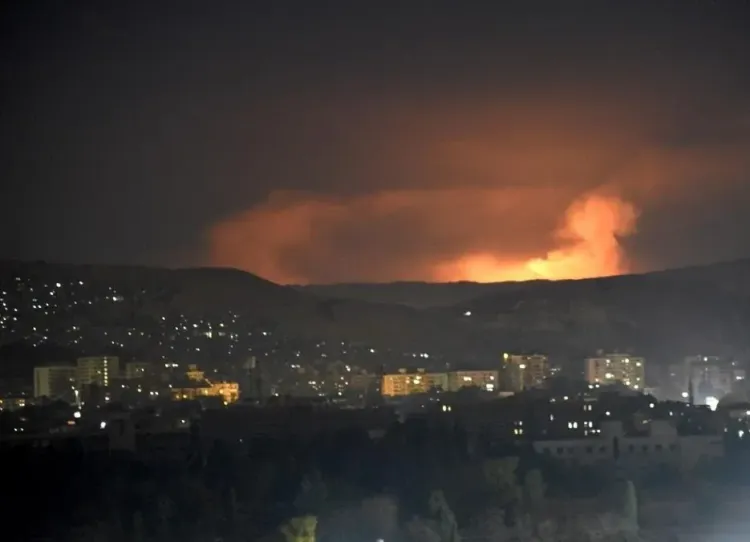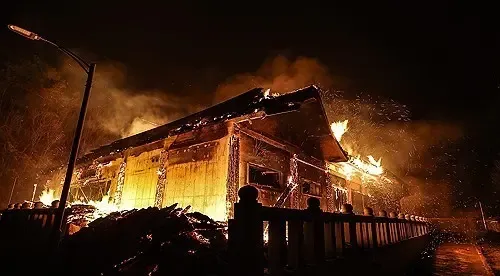Why Did Israel Strike Military Sites in Syria's Coastal Provinces?

Synopsis
Key Takeaways
- Israel targeted military installations in Syria amid rising tensions.
- Previous special forces headquarters were among the sites hit.
- The airstrikes have raised concerns regarding civilian safety.
- Over 52 strikes have been conducted by Israel in Syria this year.
- The situation remains fluid with no official response from Syrian authorities yet.
Damascus/Jerusalem, May 31 (NationPress) Israel executed a series of airstrikes targeting several military installations in the coastal provinces of Syria, specifically Tartus and Latakia. These strikes included a previously established special forces headquarters and military positions situated near civilian zones, as reported by Syrian state media and a war monitoring group.
In Tartus, the airstrikes hit a military facility that was once utilized by special forces, alongside sites in the al-Wuhaib industrial region and the al-Blata barracks, according to the Syrian Observatory for Human Rights, a UK-based war monitoring organization.
State-run al-Ikhbariya TV indicated that Israeli fighter jets struck the village of Zama in the Jableh countryside, in addition to military sites in the Mina al-Bayda port region and the 107th Brigade base located in the adjacent Latakia province.
The Israel Defense Forces released a statement confirming that they targeted weapon storage facilities in Latakia late Friday night.
They emphasized that these facilities housed missiles which posed a significant threat to international and Israeli maritime navigation, as reported by the Xinhua news agency.
No immediate casualties were reported, and Syrian defense authorities have yet to provide an official statement.
These strikes occur in a climate of escalating regional tensions, following a succession of Israeli assaults across Syria in recent months, some of which have led to fatalities and the dismantling of air defense systems or weapon depots.
Earlier, on May 3, Israel executed its most extensive airstrikes on Syria this year, hitting over 20 positions in at least six provinces, according to the Syrian Observatory for Human Rights and state media.
The assaults impacted various locations, including Mount Qasioun, Barzeh, and Harasta in Rural Damascus, with explosions reverberating near the Harasta Military Hospital.
The Observatory characterized the strikes as the most intense since the year's start, amid increasing tensions between Israel and Syria. Reports indicated dozens of injuries as a result of these strikes.
Emergency medical teams were seen hastening to several affected locales, including Kanaker, where a prior drone strike had taken four lives, according to Al-Watan newspaper.
However, Israeli media revealed that new targets had been recently approved by Prime Minister Benjamin Netanyahu and Defense Minister Israel Katz.
The Observatory noted that Israel has conducted over 52 strikes on Syria since the beginning of this year, with 44 airstrikes and eight ground attacks, destroying at least 79 targets, including weapon depots, command centers, military vehicles, and missile platforms.










